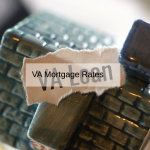Union Bank offers a variety of mortgage products to meet the needs of different borrowers. Whether you are a first-time homebuyer or looking to refinance your existing mortgage, Union Bank provides options tailored to your financial situation. With competitive rates and flexible terms, Union Bank strives to make the mortgage process accessible and straightforward for its customers.
Loan products offered
Union Bank offers a range of mortgage loan calculator products designed to accommodate various financial circumstances. These include conventional loans, FHA loans, VA loans, and jumbo loans. Conventional loans are ideal for borrowers with strong credit histories and stable incomes, while FHA loans are suitable for individuals with lower credit scores or smaller down payments. VA loans are available to eligible veterans, active-duty service members, and surviving spouses, offering favorable terms and no down payment requirement. Jumbo loans cater to borrowers seeking financing for high-value properties that exceed the conforming loan limits set by government-sponsored entities.
Minimum credit score
The minimum credit score required to qualify for a mortgage with Union Bank varies depending on the type of loan product. Conventional loans typically necessitate a credit score of at least 620 to secure favorable interest rates and terms. FHA loans may accommodate borrowers with credit scores as low as 500, although a higher score may be necessary to qualify for a smaller down payment. VA loans generally do not establish a minimum credit score requirement; however, most lenders prefer applicants with scores above 620 to ensure eligibility. Jumbo loans often mandate higher credit scores, typically starting at 700 or above, due to the increased risk associated with larger loan amounts.
State availability
Union Bank offers mortgage products in select states across the United States. The availability of specific loan programs may vary depending on the state in which the property is located. Prospective borrowers should consult with a Union Bank mortgage advisor to determine which loan options are available in their state of residence.
Minimum down payment requirements
The minimum down payment required by Union Bank varies depending on the type of loan product and the borrower's qualifications. Conventional loans typically require a down payment of at least 3% to 5% of the home's purchase price, although a higher down payment may be necessary to secure more favorable terms. FHA loans offer down payment options as low as 3.5%, making homeownership more accessible to borrowers with limited funds. VA loans offer 100% financing, eliminating the need for a down payment for eligible borrowers. Jumbo loans often require larger down payments, ranging from 10% to 20% of the home's purchase price, to mitigate the lender's risk associated with higher loan amounts.
Documentation
To apply for a mortgage loan rates with Union Bank, borrowers must provide various documents to verify their identity, income, assets, and liabilities. Commonly requested documents include government-issued identification, recent pay stubs, W-2 forms, tax returns, bank statements, and information on existing debts and obligations. Self-employed borrowers may need to submit additional documentation, such as profit and loss statements or business tax returns, to demonstrate their income stability and financial capacity. Providing accurate and complete documentation is essential to expedite the mortgage approval process and ensure a smooth closing.
Costs and fees
Obtaining a mortgage with Union Bank incurs various costs and fees, including loan origination fees, appraisal fees, title insurance, escrow fees, and closing costs. The total amount of fees can vary depending on the loan amount, interest rate, and specific requirements of the transaction. Union Bank provides borrowers with a Loan Estimate detailing the anticipated costs associated with their mortgage application, allowing them to review and compare expenses before proceeding with the loan. It is important for borrowers to understand and budget for these costs to avoid any surprises at closing and ensure a successful home purchase or refinance.
How to apply for a mortgage with Union Bank
To apply for a mortgage with Union Bank, prospective borrowers can begin the process online, over the phone, or in person at a local branch. The first step is to complete a mortgage application, providing detailed information about the borrower's financial profile, employment history, and desired loan amount. Once the application is submitted, a Union Bank mortgage advisor will review the information and guide the borrower through the remaining steps of the process. This may include documentation verification, credit checks, property appraisals, and underwriting reviews. Throughout the application process, Union Bank aims to provide personalized guidance and support to help borrowers navigate the complexities of obtaining a mortgage and achieve their homeownership goals.
What types of mortgages can I get through Union Bank?
Union Bank offers a diverse range of mortgage products to accommodate the needs and preferences of different borrowers. These include fixed-rate mortgages, adjustable-rate mortgages (ARMs), FHA loans, VA loans, and jumbo loans. Fixed-rate mortgages feature stable monthly payments and interest rates for the duration of the loan term, providing predictability and peace of mind to homeowners. ARMs offer initial lower interest rates and monthly payments, which may adjust periodically based on market conditions, making them suitable for borrowers expecting changes in their financial circumstances. FHA loans are insured by the Federal Housing Administration and offer flexible qualification requirements and low down payment options, making homeownership more accessible to first-time buyers and individuals with less-than-perfect credit. VA loans are guaranteed by the Department of Veterans Affairs and offer exclusive benefits to eligible veterans, active-duty service members, and surviving spouses, including no down payment requirement and competitive interest rates. Jumbo loans are designed for financing high-value properties that exceed the conforming loan limits set by government-sponsored entities, offering flexibility and convenience to borrowers seeking larger loan amounts.
How Union Bank’s mortgage products compare to other lenders
Union Bank's mortgage products stand out in the market due to their competitive rates, flexible terms, and personalized service. With a focus on customer satisfaction and financial empowerment, Union Bank strives to offer home mortgage loans solutions that meet the diverse needs of its clients. Compared to other lenders, Union Bank may provide unique advantages such as local market expertise, streamlined application processes, and dedicated support from experienced mortgage advisors. By prioritizing transparency, integrity, and innovation, Union Bank aims to deliver exceptional value and peace of mind to borrowers throughout the homeownership journey. Prospective homebuyers and refinancers can explore Union Bank's mortgage offerings and consult with a mortgage advisor to discover the best solution for their individual goals and preferences.













